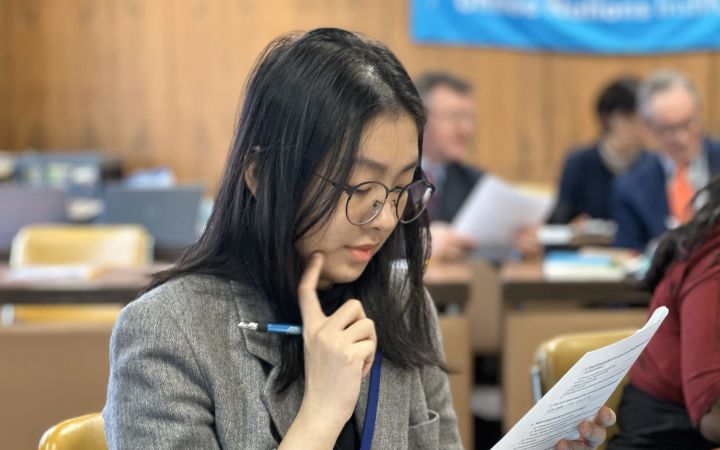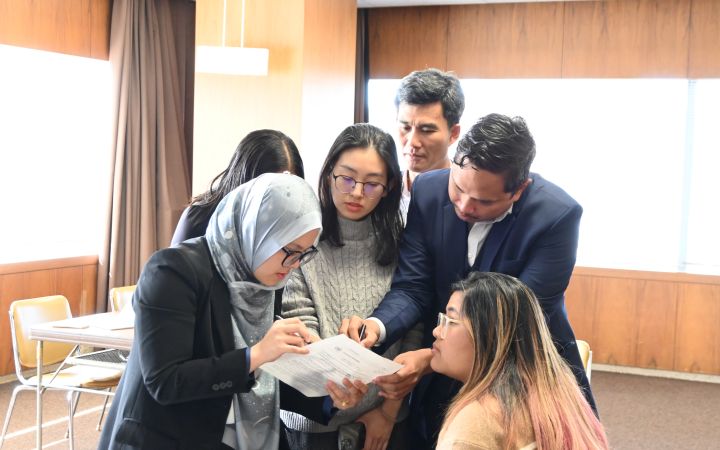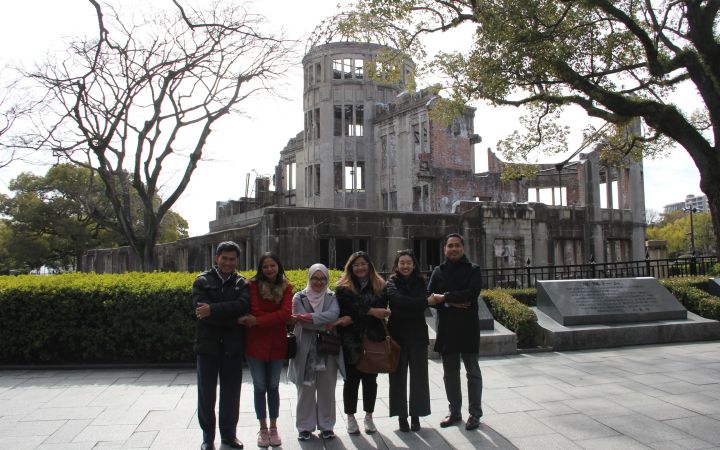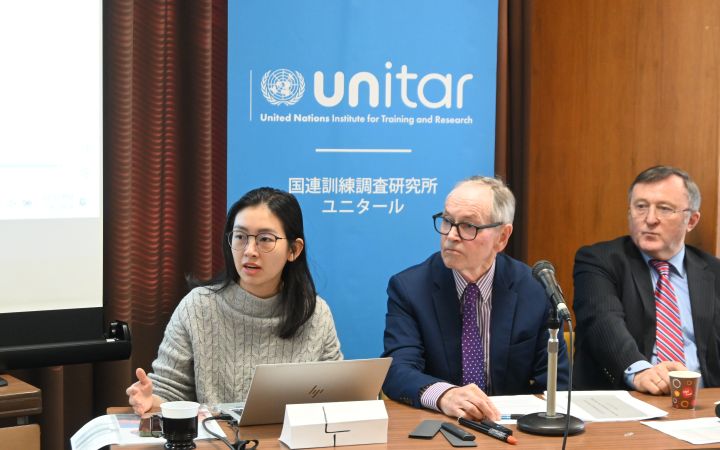- Ngan Ha Mai is an official in the Vietnam Ministry of Foreign Affairs, working on nuclear disarmament, non-proliferation and peaceful development of nuclear technology.
- Vietnam has a strong pro-disarmament stance and signed the Comprehensive Nuclear-Test-Ban Treaty (CTBT) and the Treaty on the Non-Proliferation of Nuclear Weapons (TPNW).
- The UNITAR Training programme broadened Ngan Ha’s perspectives on nuclear disarmament and non-proliferation.
18 May 2024, Hiroshima, Japan – Ngan Ha Mai is an official in Vietnam’s Ministry of Foreign Affairs, whose work portfolio focuses on nuclear disarmament, non-proliferation and peaceful development of nuclear technology. She is one of the 18 participants of the 2024 UNITAR Hiroshima Training Programme on Nuclear Disarmament and Non-Proliferation.
REPRESENTING A DEVELOPING COUNTRY
Vietnam has a long-standing commitment to nuclear disarmament, having adopted the Comprehensive Nuclear-Test-Ban Treaty (CTBT) in 2006, followed by the 2017 ratification of the Treaty on the Prohibition of Nuclear Weapons (TPNW). Vietnam was one of the first 10 countries to ratify the TPNW, demonstrating its commitment to nuclear disarmament.
Despite the country’s consistent policy of supporting international efforts for complete disarmament and non-proliferation of weapons of mass destruction, Ngan Ha notes the challenges of being a diplomat from a developing country.
As a junior diplomat [who] was educated entirely domestically, I feel that it could be quite difficult for young people in developing countries like Vietnam to access information, to be able to travel abroad, attend important meetings or access academic opportunities so that they could broaden their horizons and understand more about disarmament.”—Ngan Ha Mai, Vietnamese diplomat and UNITAR alumna
Such challenges are also compounded by her gender. Ngan Ha notes social stereotypes working women face in handling workplace and family responsibilities.
THE UNITAR TRAINING PROGRAMME
Given the few chances of learning in international settings, Ngan Ha was glad to have the Ministry present her with the opportunity to attend the UNITAR Hiroshima Training Programme on Nuclear Disarmament and Non-Proliferation, a week-long programme in Hiroshima, Japan.
The programme brought together 18 government officials from 13 Asian and Pacific countries to improve their understanding of the current global nuclear disarmament debate and build negotiation and communication skills to enhance their diplomatic work. It also sought to develop a network of like-minded professionals who can work together to encourage regional and supra-regional discourse.
Ngan Ha praised the diversity of her cohort. Despite their different backgrounds and life experiences, the participants’ shared goal of nuclear disarmament helped deepen her understanding of this topic.
LEARNING FROM THE PAST
The programme culminated in a visit to the cenotaph at the Hiroshima Peace Memorial Park, a particularly memorable and emotional experience for Ngan Ha. She believes that hearing the stories does not compare to being in Hiroshima in person. “You have to see it,” she says. “You have to see how the peace culture was integrated into the everyday living and planning of the Hiroshima people and city.”
Hiroshima’s resilience resonated with Ngan Ha, coming from a country devastated by war. In Hiroshima, she found a new perspective on the challenges in her home country.
Even though the war ended in Vietnam 50-60 years ago, to this day, we still have thousands of people affected by [its] remnants… [Going] to a place that suffered the same challenges [as] Vietnam, I saw how the people there were very creative, very resilient.” — Ngan Ha Mai, Vietnamese diplomat and UNITAR alumna
Ngan Ha is eager to apply what she learned from her UNITAR experience to future endeavours. She hopes to look at her work more systematically, informed by the broader perspective she gained by stepping outside her comfort zone with the UNITAR programme.
We don’t look at the past with hostility or resentment. But we look back at the past [as] a lesson that we need to learn and pass on to other people. We need to keep telling the story, we need to emphasize the importance of peace, and emphasize that mistakes must not be made again.” — Ngan Ha Mai, Vietnamese diplomat and UNITAR alumna
United Nations Online Volunteer Danny Liu contributed to this article.
About Unitar
The United Nations Institute for Training and Research (UNITAR) is a dedicated training arm of the United Nations. In 2022, UNITAR trained over 395,000 learners around the world to support their actions for a better future. In addition to our headquarters in Geneva, we have offices in Hiroshima, New York and Bonn and networks around the world.
The Division for Prosperity is based in the Hiroshima Office and Geneva. We seek to shape an inclusive, sustainable and prosperous world through world-class learning and knowledge-sharing services on entrepreneurship, leadership, finance and trade, digital technologies, and nuclear disarmament and non-proliferation. We empower individuals from least-developed countries, countries emerging from conflict, and small-island developing states – especially women and young people – to bring about positive change.





